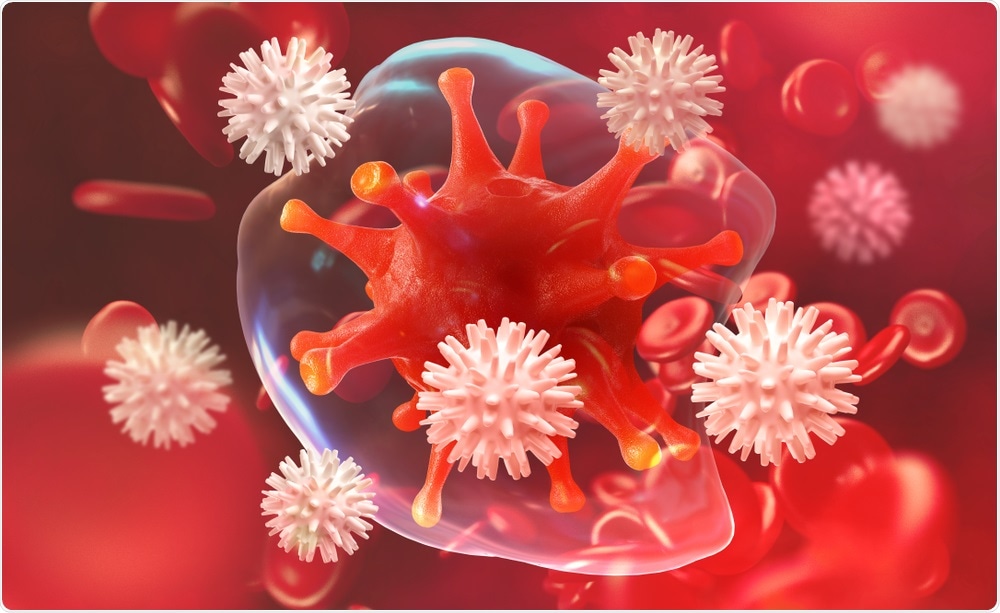Jan 31 2020
Researchers at the University of Freiburg and the Leibniz University Hannover have shed light on the mechanism through which cancer cells become camouflaged to escape immune system detection and attack.

Image Credit: Yurchanka Siarhei/Shutterstock.com
The team’s discovery could pave the way for the development of drugs that can disrupt this escape processes
Immune system cells recognize cell-surface molecules that “warn” them whether a cell represents a threat. When cells called phagocytes and B cells recognize cancerous cells, they activate T cells, which trigger events that destroy the cancer cells.
However, cancer cells that have reached the “escape” stage no longer possess the molecules that show they are dangerous. The B cells and phagocytes then fail to recognize them, the T cells are not activated and the cancer cells are not destroyed.
What have the researchers found?
Now, chemical biologist Banks- Banks-Köhn and colleagues have discovered a key protein that is needed to activate this escape process. They hope that their findings could lead to the development of agents that specifically interrupt this mechanism of activation.
This could one day improve the effectiveness of treatment approaches that use immunotherapies called immune checkpoint inhibitors – antibodies that bind to receptors present on the surface of T cells.
In healthy individuals, these immune checkpoint receptors and the cell signaling pathways they induce stop the immune system from spiraling out of control by regulating processes such as inflammation, which can cause swelling and fever.
Cancer cells, however, take advantage of immune regulatory mechanisms such as these to stop themselves from being targeted while they multiply.
Banks-Köhn and team carried out cell culture studies which showed that a signaling protein called SHP2 that is present on T cells specifically binds to two sites on an immune checkpoint receptor called programmed cell death 1 (PD1) once it has been activated by a signal sent by cancer cells.
As reported in the journal Science Advances, it is this specific binding at the two sites on PD1 is triggers the cancer cells’ camouflaging ability and halts the T cell response.
Antibodies that bind to checkpoint inhibitors such as PD1 have already been approved for some types of cancer, but many patients experience autoimmune reactions to these therapies. The team hopes their new findings could help researchers improve these treatments by intercepting the cancer cells’ activation mechanism.
Drugs that prevent the binding of SHP2 and PD1 could be used in the future to make side effects less severe and to support, or to act as alternatives to, antibody treatments,”
Banks-Köhn.
What is next?
The next step is to unravel the PD1 signaling pathway: "In our ongoing research project at the CIBSS - Centre for Integrative Biological Signalling Studies the next step is to decode the signaling pathway of PD1 - in other words, where the proteins are located in the cell, where they bind, and within what time frame the signals take effect," concludes Banks-Köhn.
Sources:
How the immune system becomes blind to cancer cells. EurekAlert! 2020. Available at: https://www.eurekalert.org/emb_releases/2020-01/uof-hti012920.php
Science Surgery: ‘Why doesn’t the immune system attack cancer cells?’ Cancer Research Uk 2019. Available at https://scienceblog.cancerresearchuk.org/2019/02/28/science-surgery-why-doesnt-the-immune-system-attack-cancer-cells/